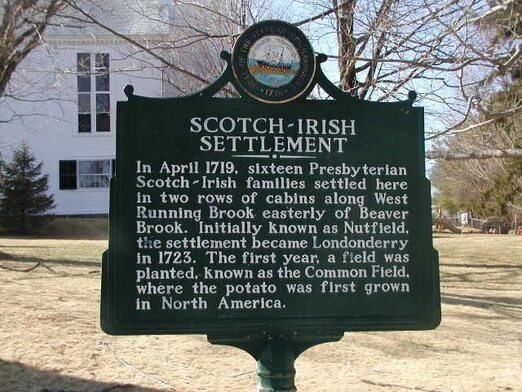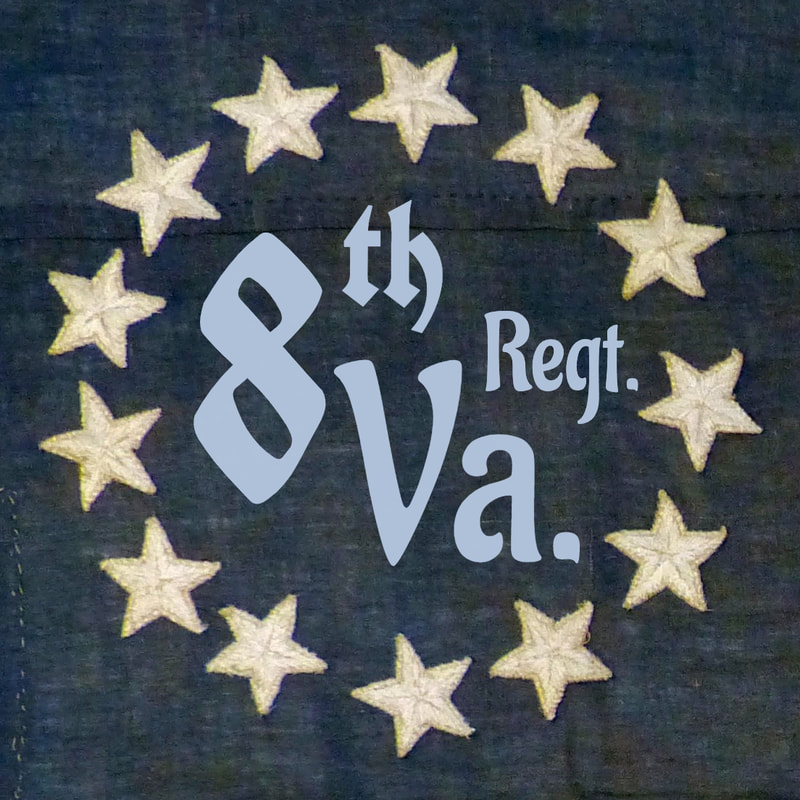 A sign in New Hampshire marks the place of an early Scotch-Irish settlement. A sign in New Hampshire marks the place of an early Scotch-Irish settlement. Most histories refer to the 8th Virginia as "the German Regiment." It was certainly led by Germans: Peter Muhlenberg, Abraham Bowman, and Peter Helphinstine. But many of the enlisted men were "Scotch-Irish." Most often they were simply called "Irish" at that time even though their ancestors often came from Scotland via Northern Ireland. They were universally Protestant, but Presbyterian--a denomination that most British soldiers equated with revolutionary sentiment. The term "Scotch-Irish" had been occasionally used for some time but became important to distinguish Protestant Irish from the Catholic Irish who began to come to American in large numbers in the 1840s. Here's an interesting article on the difference between "Irish" and "Scotch Irish" in American history and culture. I use the term "Scotch-Irish" and "Protestant Irish" and sometimes just "Irish" interchangeably. Occasionally, someone will tell me that the proper term is "Scots-Irish." I've stuck with "Scotch-Irish" because it is the traditional term and the one I was taught. "Scotch" is also the original term, dating back three centuries. It shows up in Scotch Tape, Scotch plaid, and Scotch whiskey. It is, however, now distinctly American. If you go to the British Isles they will correct you if you say "Scotch" to refer to a person. "You say 'tom-AH-to' and I say 'tom-AY-to.'" As an American blog about American history, "Scotch-Irish" seems like the right term here. (Revised, May 26, 2021)
1 Comment
|
Gabriel Nevilleis researching the history of the Revolutionary War's 8th Virginia Regiment. Its ten companies formed near the frontier, from the Cumberland Gap to Pittsburgh. Categories
All
Archives
March 2024
© 2015-2022 Gabriel Neville
|

 RSS Feed
RSS Feed